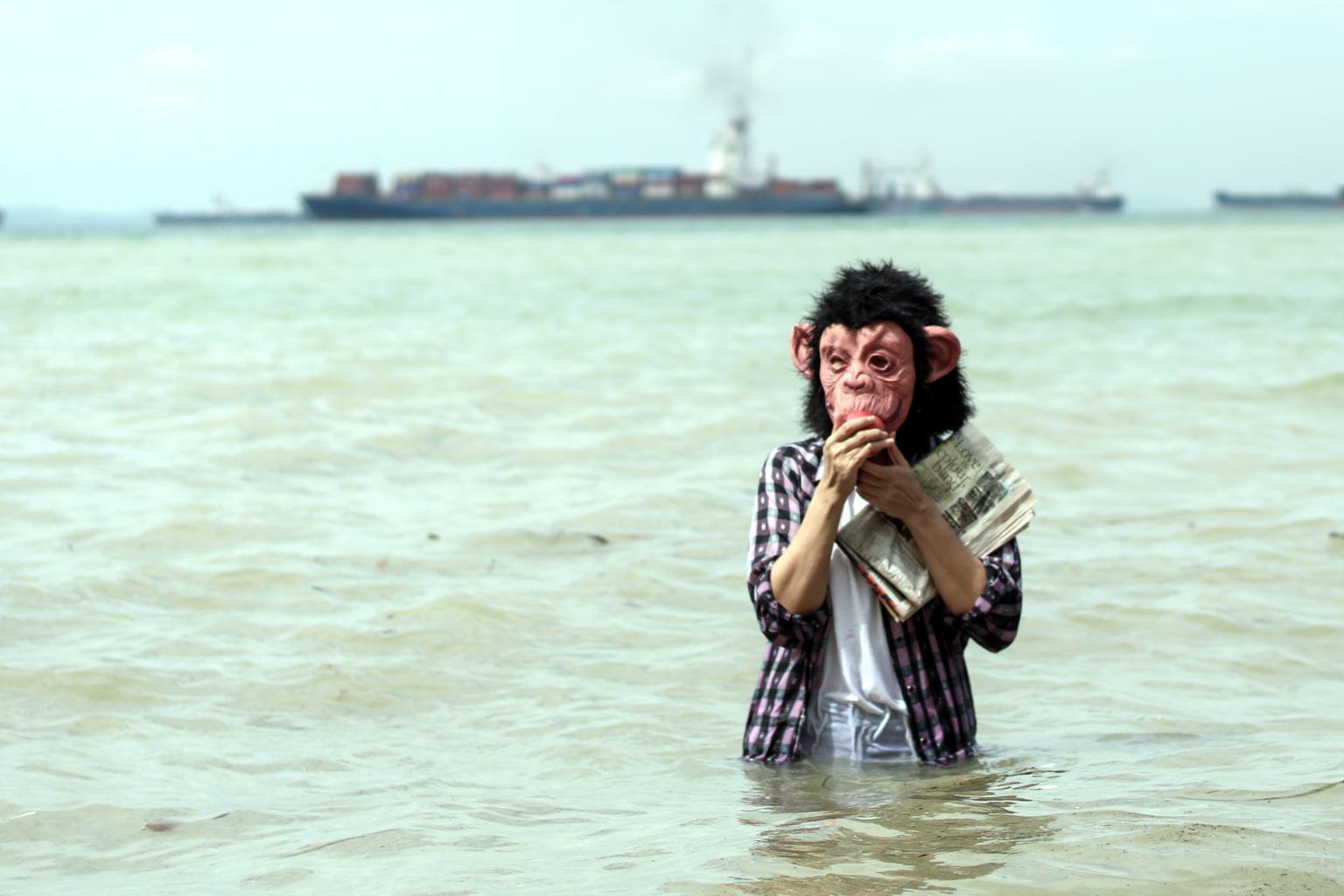Theatre review: Ambitious script trips up M1 Fringe's A Line Could Be Crossed
Sign up now: Get ST's newsletters delivered to your inbox

The theme of climate change is channelled through the voices of anthropomorphised animals in the play.
PHOTO: ST FILE
Theatre
A Line Could Be Crossed And You Would Slowly Cease To Be
Koh Wan Ching and Andrew Sutherland
M1 Singapore Fringe Festival
Esplanade Theatre Studio, Wednesday (Jan 20)
There is a lot of craft in this M1 Singapore Fringe Festival opener. Unfortunately, it is not accompanied by much narrative coherence.
Quite possibly playwright Andrew Sutherland has bitten off more than he can chew in an attempt to address the compelling but complex issue of climate change.
This theme is channelled through the voices of anthropomorphised animals, actors wearing rather realistic animal head masks which require them to speak into a microphone in order to be heard.
An otter, a pair of turtles, a seagull and even a Merlion in a silky red fishtail get to have their say.
This touch of the absurd might have worked well, except its quirkily surreal tone clashes with two placidly domestic storylines, centering on the relationship woes of a gay and a straight couple.
Fracturing the narrative still further is a fourth story - more a cameo really - of a cancer-stricken woman.
Directed with a steady hand by Koh Wan Ching, the production feels less hectic and flows more smoothly than this quick summary suggests. The sincere earnestness of the cast, anchored by the strong presence of veterans Grace Kalaiselvi and Irfan Kasban, helps.
Younger actors Jeramy Lim and Liz Sergeant Tan are a bit wobbly, with some stiffness and flubbed lines perhaps due to opening night nerves. But Shahid Nasheer evinces some heartfelt angst as a lost soul finding an unexpected anchor in his relationship with Lim's HIV-positive, commitment-wary character.
There are some poetic moments in Sutherland's script, such as the opening prologue by Tan's artist character, who observes that it is terrifying to live: "If you want to live you have to hold all this terror too."
The monologue of Kalaiselvi's cancer-stricken mother unfurls deftly first as a dying woman's plaint to her young son, then becomes a lament for a lost child, a tragic reversal of the chronology of death.
A quixotic conversation between a mother and baby turtle tackles the latter's fear of venturing into the wide world, a conversation given comic resonance by the costuming choice of military headgear and backpack.
The playwright also addresses some discomfiting issues. Tan's artist rails about "treating the end of days like an art project", touching a raw nerve about the role of art in a crisis-ridden era.
Nasheer's character asks his horrified partner to "share" his illness in an unsettling and desperate plea for a permanent connection.
But these fleeting fragments are not teased out for fuller exploration. One character apologises for her "little tangent" after a rather engaging mini-lecture about whales and earwax. This play has too many tangents when it needs to follow firmer narrative lines.


